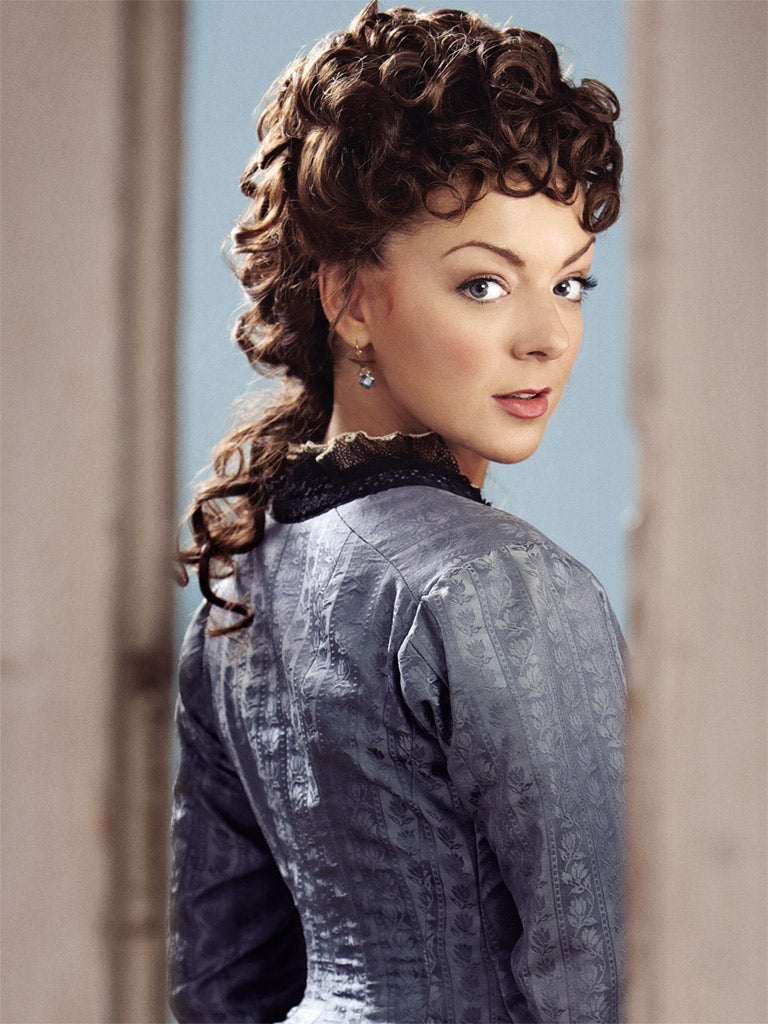First Night: Hedda Gabler, Old Vic, London
Sheridan Smith's high-stakes Gabler gamble hasn't paid off

Your support helps us to tell the story
From reproductive rights to climate change to Big Tech, The Independent is on the ground when the story is developing. Whether it's investigating the financials of Elon Musk's pro-Trump PAC or producing our latest documentary, 'The A Word', which shines a light on the American women fighting for reproductive rights, we know how important it is to parse out the facts from the messaging.
At such a critical moment in US history, we need reporters on the ground. Your donation allows us to keep sending journalists to speak to both sides of the story.
The Independent is trusted by Americans across the entire political spectrum. And unlike many other quality news outlets, we choose not to lock Americans out of our reporting and analysis with paywalls. We believe quality journalism should be available to everyone, paid for by those who can afford it.
Your support makes all the difference.I simply longed to be her chihuahua as I watched Sheridan Smith's irresistible portrayal of Elle, the not-so-dumb bimbo in the musical of Legally Blonde. I ached to dry her tears when, in another Olivier-award winning performance, the actress played a plucky former barmaid in Flare Path. These parts are not exactly conventional rungs, though, in the ascent to performing Ibsen's Hedda Gabler, the disdainful daughter of a disgraced general who is about as cuddly, bubbly and staunch as an anaconda.
So Smith, with her down-to-earth openness and warmth, has been cast against type in a role that has been described as the Hamlet of the female repertoire in its demands. It is with a heavy heart that I have to report that this calculated, potentially refreshing gamble has not paid off in a production by Anna Mackmin that is damagingly deficient in tension or any sense of sick, black-joke inexorability as the escape hatches close on a heroine whose schemes all backfire. Hedda Gabler is the victim both of circumstances in a male-dominated society and her own contradictory, destructive nature. In recent years, the balance between these two truths has tilted in the direction of emphasising a Hedda who is the twisted author of her own oppression. This is redressed here to the extent that you can see that Smith's Hedda lethally meddles with other people's lives as a warped compensation for her feelings of frustration and entrapment. And in the over-explicit Brian Friel adaptation used here, she gets to expatiate centre-stage on the sort of "joyless freedom" she experiences when "possessed" by nihilistic mischief.
But I'm afraid that this is in many respects an inadequate account of the part. Got up to look like a Georgette Heyer villainess, Smith projects effortfully in a strained high-pitched voice (Hedda is a natural mezzo) and in an unsteadily refined accent and for all the world comes over as a lovely Northern lass who has been landed with the awkward burden of portraying a self-hating, bitchy sophisticate.
There's no scary force-field around this Hedda or any of the perverse magnetism of the bully or – even when she's taking pot-shots at Darell D'Silva's Judge Brack – a crackle of the danger she has become to herself and others because of her toxic marital boredom. When she manouevres her old flame Loevborg (Daniel Lapaine) back to the brink, her approach is hectoring rather than sly.
There seems to be little going on under the archly appraising smile, so that you get the odd impression of vacancy rather than of a complex woman mystified and stricken by a conscious inner emptiness. Smith would better suited to the role of Thea, the schoolmate Hedda terrorised and whom she now envies for having the courage to defy convention that she lacks. This production pointedly highlights the contrast between the two characters at the end, as Fenella Woolgar's mountingly assertive Thea gathers up the notes for reconstituting Loevborg's book and then determinedly, and rather disgustedly, walks away from the suicide scene.
In a very funny performance, Adrian Scarborough is arguably over-endearing as Tesman, Hedda's boring academic husband who is absurdly proud of his work on "domestic crafts in 10thcentury Holland". But to the question "what is a nice girl like Sheridan Smith doing in a play like this", the sad answer is "not terribly well".
Join our commenting forum
Join thought-provoking conversations, follow other Independent readers and see their replies
Comments